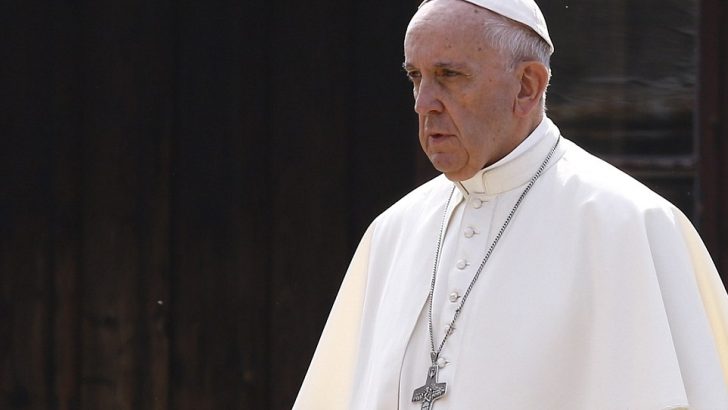Europe has a “twofold moral responsibility to protect the rights of its citizens and to ensure assistance to and acceptance to migrants”, Pope Francis has said.
Speaking in the Vatican’s Regal Room in his annual New Year address to members of the diplomatic corps accredited to the Holy See, the Pope reflected at length on the “grave crisis of migration” in the world, lamenting how “an individualistic spirit is fertile soil for the growth of that kind of indifference towards our neighbours which leads to viewing them in purely economic terms, to a lack of concern for their humanity, and ultimately to feelings of fear and cynicism”.
The Pontiff drew on biblical examples to illustrate the diverse causes of suffering behind the migration crisis, and notes how Europe in particular has become a source of hope for many fleeing Africa and Asia.
“All the same,” he continued, “the massive number of arrivals on the shores of Europe appear to be overburdening the system of reception painstakingly built on the ashes of the Second World War, a system that is still an acknowledged beacon of humanity.”
He highlighted problems to do with cultural differences, social integration, geopolitical balances, and security threats, and expressed concern that “the present wave of migration seems to be undermining the foundations of that ‘humanistic spirit’ which Europe has always loved and defended”.
Despite this risk, however, the Pope said he was convinced that Europe, “aided by its great cultural and religious heritage”, has the resources to “defend the centrality of the human person” and to find the right balance between its differing moral obligations. He warned against “the vacuum of ideals and the loss of identity – including religious identity – which dramatically marks the so-called West”, and said this vacuum leads to fear in the face of perceived difference, closed-mindedness and intransigence.
Although the heart of Pope Francis’ address dealt with the migration crisis and other challenges, the Pontiff also highlighted that there are causes for hope. He singled out the hospitality shown by such countries as Italy and Greece in receiving large numbers of refugees, elections having been peacefully conducted in the Central African Republic, and peace initiatives in Cyprus and Columbia, as well as the Iran nuclear deal and the climate agreement reached in Paris.
He looked forward, he said, to the first ever World Humanitarian Summit, which has been convened by the United Nations for May, saying he hopes it will “succeed in its goal of placing the person and human dignity at the heart of every humanitarian response”.



